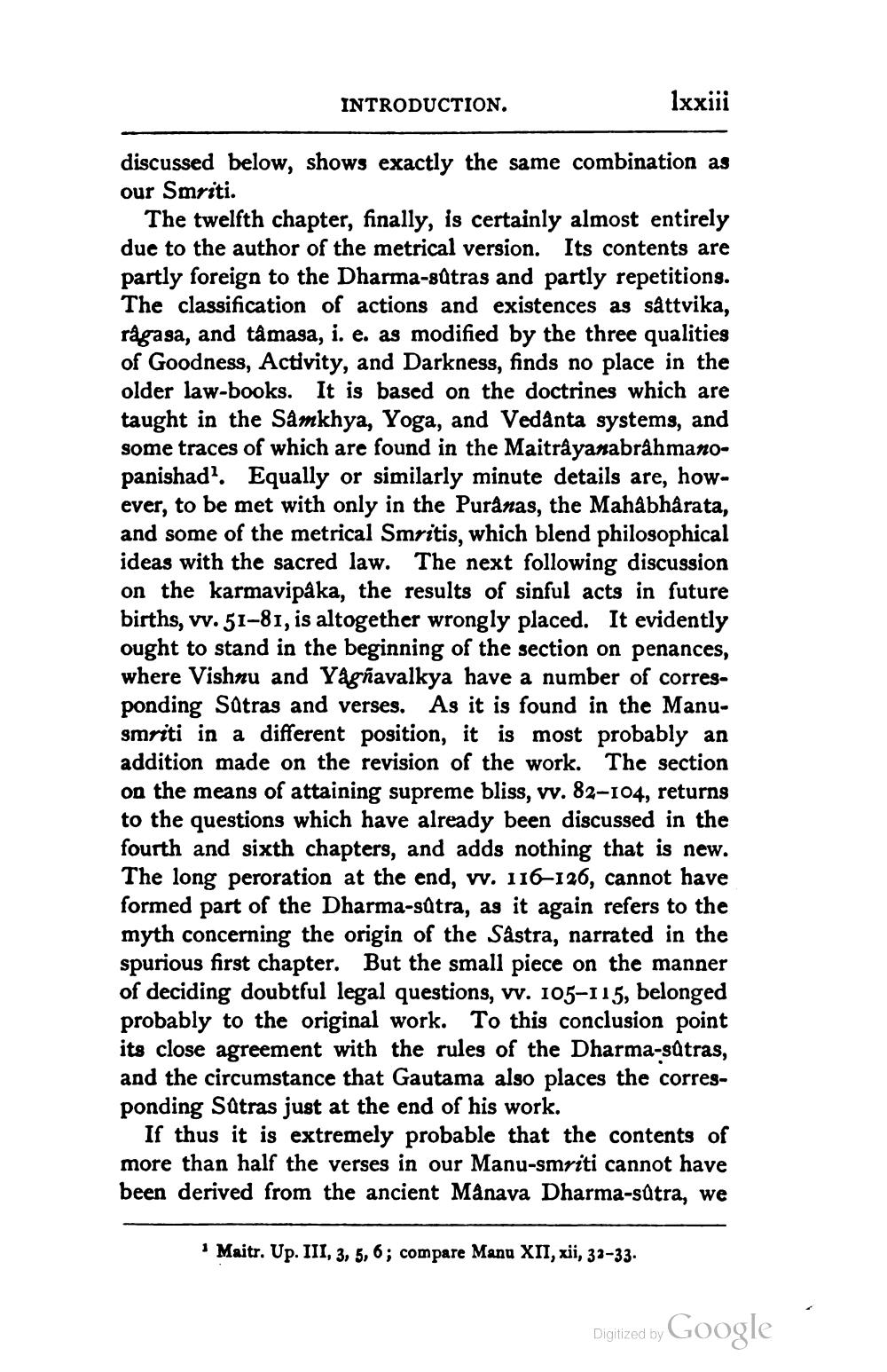________________
INTRODUCTION.
1xxiii
discussed below, shows exactly the same combination as our Smriti.
The twelfth chapter, finally, is certainly almost entirely due to the author of the metrical version. Its contents are partly foreign to the Dharma-sutras and partly repetitions. The classification of actions and existences as såttvika, rågasa, and tầmasa, i. e. as modified by the three qualities of Goodness, Activity, and Darkness, finds no place in the older law-books. It is based on the doctrines which are taught in the Samkhya, Yoga, and Vedanta systems, and some traces of which are found in the Maitrayanabrâhmanopanishad?. Equally or similarly minute details are, however, to be met with only in the Puranas, the Mahabharata, and some of the metrical Smritis, which blend philosophical ideas with the sacred law. The next following discussion on the karmavipaka, the results of sinful acts in future births, vv.51–81, is altogether wrongly placed. It evidently ought to stand in the beginning of the section on penances, where Vishnu and Yagñavalkya have a number of corresponding Satras and verses. As it is found in the Manusmriti in a different position, it is most probably an addition made on the revision of the work. The section on the means of attaining supreme bliss, vv. 82-104, returns to the questions which have already been discussed in the fourth and sixth chapters, and adds nothing that is new. The long peroration at the end, w. 116-126, cannot have formed part of the Dharma-sætra, as it again refers to the myth concerning the origin of the Sastra, narrated in the spurious first chapter. But the small piece on the manner of deciding doubtful legal questions, w. 105-115, belonged probably to the original work. To this conclusion point its close agreement with the rules of the Dharma-sūtras, and the circumstance that Gautama also places the corresponding Satras just at the end of his work.
If thus it is extremely probable that the contents of more than half the verses in our Manu-smriti cannot have been derived from the ancient Manava Dharma-sátra, we
* Maitr. Up. III, 3, 5, 6; compare Manu XII, xii, 32-33.
Digitized by Google




